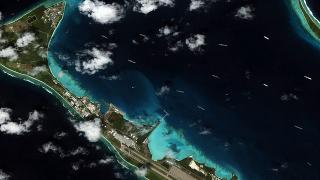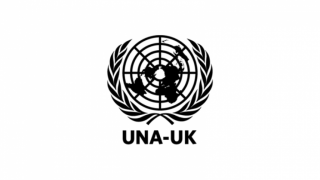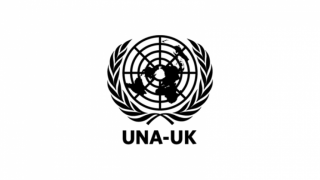
The International Court of Justice has ruled that it can hear a case challenging the UK's decision to establish a marine protected area around the Chagos Islands. The process could also require the UK to justify its decisions to lease one of the islands to the United States for military purposes, and to remove and re-settle the Chagossians from the territory.
Initially dependencies of Mauritius, which was a British colony until 1968, the Islands were detached three years prior to that to become part of the British Indian Ocean Territory. In 1966, the UK leased Diego Garcia, the largest of the Islands, to the United States, and the territory has been governed since then by UK/US Agreements regulating its use for defence purposes.
In 1967, the UK bought out the Islands plantation owners, shut down the plantations and stopped regular ship supply. The Chagossians, numbering some 2,000 at the time, were evacuated and re-settled in Mauritius and the Seychelles over a period of six years.
Advocacy groups maintain that Chagossians were not consulted during this process, nor properly compensated or re-settled. There are several reports - including by the UN Special Rapporteur on Indigenous Peoples - documenting discrimination, abuse and poverty suffered by Chagossians in Mauritius and the Seychelles.
Following publicity of their situation in the 1990s, the UK permitted Chagossians to return to parts of the territory in 2000. This decision was overturned in 2004 as Diego Garcia assumed new strategic importance. Since then, Chagossians have been pursuing their right to return through a series of legal challenges. Successive reports by UN human rights mechanisms and by parliamentary committees have recommended that this right be upheld.
In 2009, the situation was further complicated by the UK's decision to establish a 'marine protected area' around the Chagos Islands. While many MPAs are inhabited, the designation of this particular area as a 'no-take' reserve would several curtail human activity, from fishing to construction of houses.
UNA-UK wrote to the UK government in May 2010, asking it to reconsider its position on the MPA:
UNA-UK is writing to express its concerns regarding the decision announced on 1 April 2010 to establish a ‘no-take’ Marine Protected Area (MPA) in the British Indian Ocean Territory, which includes the Chagos Islands.
While UNA-UK welcomes the efforts to protect the Chagos archipelago and notes that in his announcement, former Foreign Secretary David Miliband described the decision as “without prejudice to the outcome of the current, pending proceedings before the European Court of Human Rights (ECHR)”, we are disappointed that neither his statement nor the consultation document made reference to the representations by members of the Chagossian diaspora for recognition of their ‘right to return’.
The UN Human Rights Committee, which monitors implementation of the UK’s obligations under the International Covenant of Civil and Political Rights, has twice recommended (most recently in 2008) that the UK should uphold the right of the Chagos Islanders to return. This position was echoed in a 2008 Foreign Affairs Select Committee Report on Overseas Territories, and reiterated several times by MPs and Lords from the three main political parties in the 6 April parliamentary debates.
The UK government has long recognised the plight of the Chagossians. Former FCO Minister Chris Bryant repeatedly stated during the 6 April Commons debate how much the UK regrets the ‘shameful’ treatment of the Chagossians in the 1960s and 1970s. In a letter to the UK Chagos Support Association just prior to the general election, the new Foreign Secretary, William Hague, said that “if elected to serve as the next British government, we will work to ensure a fair settlement of this long-standing dispute”. Deputy Prime Minister Nick Clegg also made a strong statement, saying “[the Liberal Democrats] have actively supported [the Chagossian] cause in the past and we will continue to aid their campaign to see justice done. We have been appalled that the [previous] government has wasted time, money and effort defending the indefensible”.
UNA-UK believes that the environmental and human rights objectives pertaining to Chagos are not necessarily incompatible, and that it is vital to ensure that the Chagossians are fully involved in the process of fleshing out the details of the MPA.
We therefore urge the new UK government to:
- work with the Chagossians (and all other relevant parties) on an MPA solution that takes into account their right to self-determination as set out in the two International Covenants and the Declaration of the Rights of Indigenous Peoples, and simultaneously provides adequate protection for a very precious marine ecosystem;
- consider, once the outcome of the ECHR decision is known, the recommendations made by the UN Human Rights Committee on the right of Chagossians to return; and
- report on the situation in the UK’s next periodic report to the UN Human Rights Committee.






